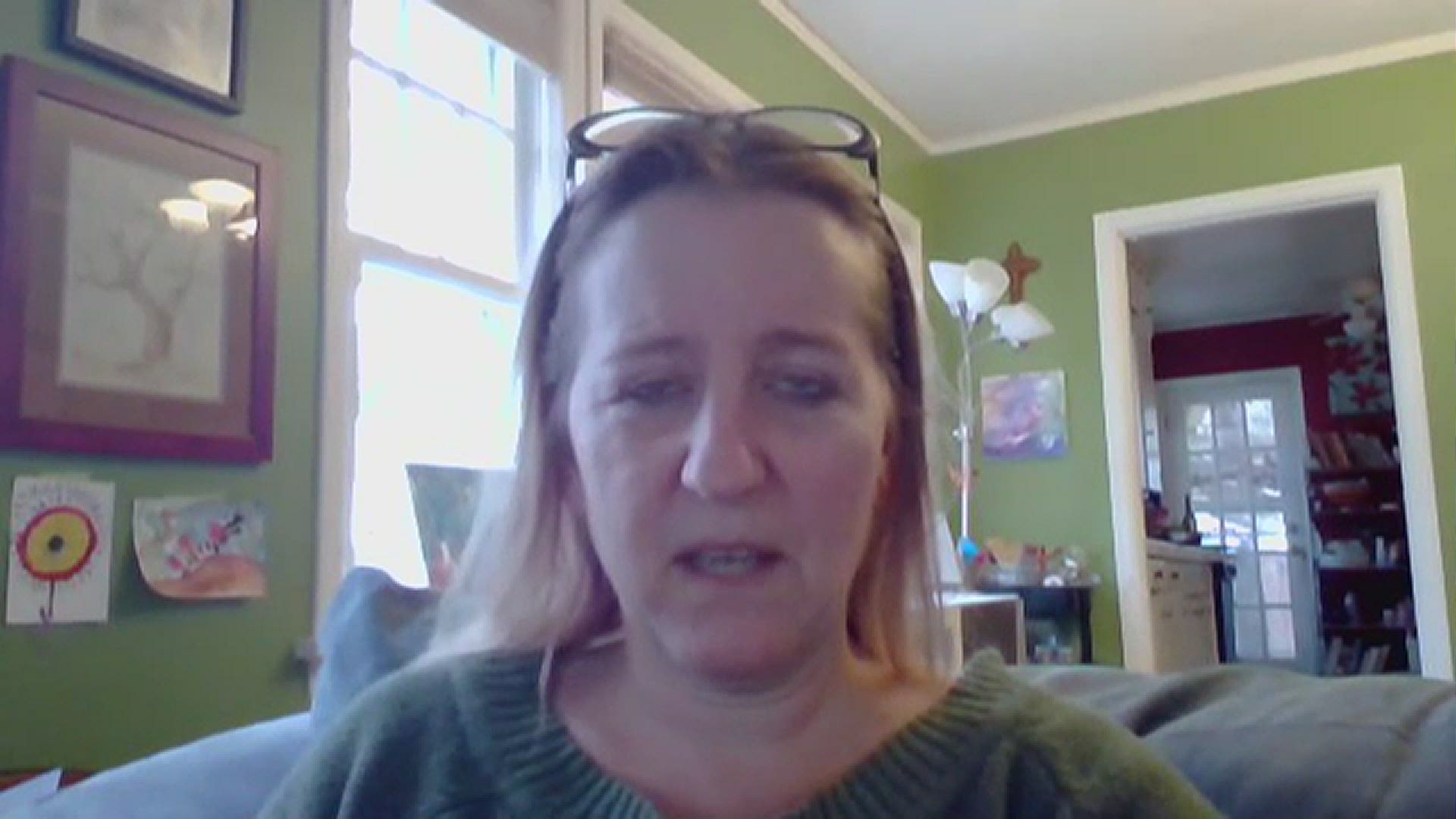PORTLAND, Oregon — At least tens of thousands of Americans have dealt with COVID-19 symptoms for more than seven months.
They're called post-COVID "long-haulers," and some tell us that seeing the state's recent uptick in cases makes them frustrated and disappointed. They thought the worst part was over in March when they felt they were going to die on more than one occasion.
Fast forward seven months and 32-year-old Jennifer Prindiville, of Salem, and 49-year-old Tania Humphrey, of Portland, still don't know when their bodies and brains will be normal again.
"I feel like there's no end in sight," Prindiville said. "It affects your life in every way. I’ve had blood tests and lumbar puncture, MRIs, CT scans. I mean, I can’t do stuff with my kids anymore. I can’t go for long rides or bike rides because it’s taken over my life and it’s so hard to do anything."
"I don't know what is happening to my body and I don't like not knowing what's happening to my body," Humphrey said. "It's a balance between trying to be grateful and mindful of the fact I’m alive, I made it through that, and also at the same time dealing with all these other things and trying not to be scared of them."
No one has any answers about what's going on with their bodies and it's unclear what long-term impacts the novel coronavirus has on different people.
Prindiville said she still had shortness of breath, speech issues, fatigue, a headache, dizziness, lightheadedness, body aches and memory issues. Humphrey also struggles with similar issues and has a lingering cough.
When both women were finally able to get tested weeks after their sickness came on, results came back negative. But doctors diagnosed them with COVID-19, saying their tests were inaccurate. Humphrey later tested positive for antibodies.
While most recover from COVID-19, many people worldwide now live with lingering issues, much like those Prindiville and Humphrey deal with every day, for months after their diagnosis. Neither are able to do the activities they once loved to do.
According to surveys conducted by patient groups and studies published in late July and August, 50% to 80% of COVID-19 patients have lingering symptoms at least three months after first falling ill, even when tests no longer detect the novel coronavirus.
"I know a lot of people are dealing with a resurgence of remembering the fear of what it felt like. And I don’t want other people to have to go through that," Humphrey said. "I worry about all the people that are going to come after me who might be seven months away, and not being able to run and play with their kids like they used to and not know why, or dance."
Knowing how the virus can ravage people's bodies, long-haulers feel disheartened watching Oregon's cases and hospitalizations climb.
"It's depressing seeing all these people getting sick and people not following guidelines to try to protect other people," Prindiville said.
They, too, want pre-pandemic life restored and things to go back to the way they once were - including their bodies. But they know that won't go away anytime soon if we don't look out for each other. And they want Americans to understand what it can really be like for so many survivors.
"I think, gosh, if we had just taken it seriously and started at the beginning. But there's no reason we can't do that now," Humphrey said.

